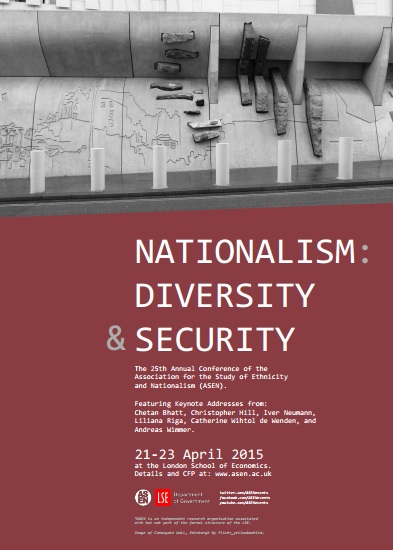Upcoming Conference: “Minorities in Armies: Ethnicity, Race, Alienage”
June 30, 2015, 10.00-17.30
University of Warwich, The Institute of Advanced Study (Seminar Room)
Against the backdrop of a perceived national uniformity in the armed forces, in the Modern and Contemporary Age the military has been characterized by a sizeable presence of ethnic and racial minorities, as well as of aliens. The topic has been widely overlooked by scholarship; yet it seems necessary to investigate further an issue that could eventually lead to contesting the widespread perception of the military as an agent of cultural homogenisation and nationalisation. The conference will therefore seek to pose theoretical questions through papers by scholars who have studied specific cases, focusing in particular (but not exclusively) on WWII. Specifically, the one-day conference will be based on a morning and an afternoon session, each composed of three speakers and one respondent, followed by time dedicated to debate.
The first session will take into account experiences related to Italians or Italian ethnics in the Allied armed forces in WWII, or people of Italian descent enrolled in the Italian armed forces. The second will analyse the experience of ethnic and racial minorities in the British armed forces from WWII to recent times.
The conference is free and lunch is provided, but since numbers are limited registration is required. The deadline for registration is 20th June.
Please click here for more information.
Call for Papers: “The Social Reproductive Worlds of Migrants”
3rd ISA Forum of Sociology, July 2016, Vienna
While research highlights the role inward migration plays in meeting the social reproductive needs of migrant-receiving societies, less attention is paid to the social reproductive aspects of migrants’ lives. In the context of the increasing volume in international migration and its feminisation, and the increasingly instrumentalist and economistic approach to migration-entry regimes, it is critical that migration and family policies begin to acknowledge that a production system cannot operate without a reproduction system (Truong, 1996).
This joint (RC06 and RC31) paper presentation session, invites papers that contribute to developing a research agenda on the social reproductive worlds of migrants. Social reproduction incorporates family building through relationship formation and procreation, and the ongoing care required in the maintenance of people on a daily basis across the life-course. Thus, we seek contributions that examine how during processes of migration, families are formed, procreate and care.
Possible areas include:
- spatial and temporal configurations of how migrants organise their social reproductive worlds, and how these relate to the patterning of opportunities and constraints rendered by public policies
- in both countries of origin and of destination;
the role of managed migration strategies in the development of patterns of ‘stratified social reproduction’ (Kraler, 2010) among migrants; - how, to what extent and under which conditions transnational family dynamics and solidarities provide kin members with a safety net and greater opportunities to access and claim rights to social protection;
- the gendered nature of migrants’ social reproductive worlds, including male as well as female migrants.
The deadline for submitting proposals of max 300 words is 30 September 2015. Please upload your proposals through this link:http://www.isa-sociology.org/forum-2016/
Call for Contributions: “Migrants in the City: New Dynamics of Migration in Urban Settings”
Culter’s Hall, Sheffield, 12-13 October 2015
Rapid urbanisation is radically changing the economic, financial, social, and ecological landscape of our planet. It has been identified as the single greatest development challenge and opportunity for the 21st century. International migration has been, is and will continue to be a key route both shaping and being shaped by urbanisation.
As the UN-Habitat Manifesto for Cities notes, the world has entered an urban era where cities have taken centre stage, inevitably shaping the social and spatial structures and trajectories of cities. The international conference Migrants in the City will provide a forum for the examination of key questions related to contemporary international migration in the context of urban development, residential segregation and diversity. The conference is designed to be global in focus. Contributions are welcomed that reflect on the causes and consequences of all forms of international migration (for example, for employment, for family reasons, to seek refuge, to study) in urban settings, but that also explore intersections between migration, urban development and key related issues, including:
- effects of economic restructuring;
- rising income inequality within and between host/destination countries;
- the growth of megacities and the implications for segregation and migration;
- settlement patterns, diversity, and spatial persistence;
- development and wellbeing implications of migration and segregation;
- effects of climate and environmental change;
- gender and family life of migrant communities and issues of identity;
- the meaning and practice of security;
- migration and urban governance;
- methodological challenges/innovations for migration and segregation
The organizers are currently calling for submissions of abstracts, panel session and poster proposals. All proposals and papers should be sent to migrantsconference@sheffield.ac.ukby Friday 29th May.


